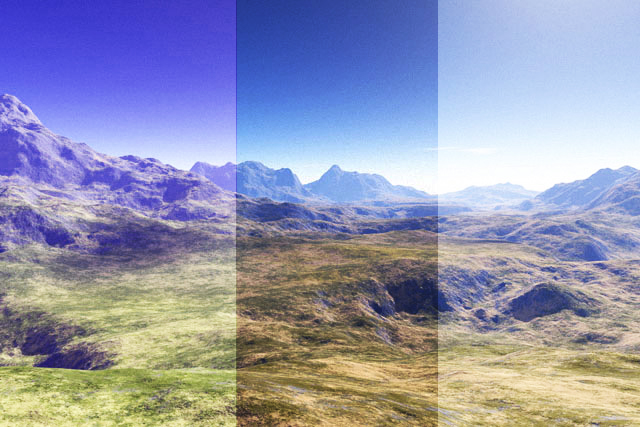 Camera filters are photography accessories that are normally attached over the lens of a camera. They are translucent optical elements that alter the properties of light entering the camera lens with the main purpose of improving the image being photographed. The main purpose of the filters is to regulate light that comes through the lens of the camera and reaches the film or the sensor. The effect of filters on the camera is to reduce glare and increase color saturation. The camera filters regulates color saturation by blocking other colors and wavelengths of light, it also affects contrast, sharpness, highlight flare, color and light intensity creating a variety of special effects.
Camera filters are photography accessories that are normally attached over the lens of a camera. They are translucent optical elements that alter the properties of light entering the camera lens with the main purpose of improving the image being photographed. The main purpose of the filters is to regulate light that comes through the lens of the camera and reaches the film or the sensor. The effect of filters on the camera is to reduce glare and increase color saturation. The camera filters regulates color saturation by blocking other colors and wavelengths of light, it also affects contrast, sharpness, highlight flare, color and light intensity creating a variety of special effects.
There are various types of camera filters like polarizing filters, Neutral density filters, UV filters and many others. Filters come in different range and strength and the type of the camera lens filter used determines the effect realized on the image. Depending on the camera lens filter that is being used, it’s capable of creating a subtle change on the image and can drastically affect the outcome of the image.
UV Filters
UV camera lens filters are fitted over the front of the lens with the main purpose of protecting the front lens element. They not only protect the camera from the dust and impurities but also reduce the amount of haziness caused by ultraviolet light. The UV filters helps in blocking the ultra violet lights from interfering with the pictures, they are sensitive to heaviness and fogginess and works well to control their effect on the images. Though most of the DSLR cameras are not affected by the UV rays, this leaves the UV filters with the work of protecting the camera. In case of any dirt it’s much easier to clean the filters than to clean the lens itself making the UV filters very effective in photography work.
Polarizing Filters
Polarizing filters is an accessory that every photographer should have in his kit given the important effect it has during photography. Polarizing camera lens filters work by reducing the amount of reflected light that can reach the camera sensor. Polarizing filters regulates color and contrast enhancement and reflection control using optical principles different from any other filter types. Most of the light that is recorded during photography takes its color and intensity from the objects that are being focused on and the polarizing filters regulates the glares of the reflections that come from the objects reducing their effects on the images. Polarizing filters are very useful during landscape or outdoor photography.
Neutral Density
Neutral Density filters also known as ND filters are mostly used in imaging or laser applications to prevent excessive light from damaging camera sensors or the optical components in order to increase exposure time. They are also responsible for controlling excessive light from causing inaccurate results in photometer applications. The nice soft images of moving clouds or waterfalls are aided by the effect of Neutral Density filters, they do not radically affect the image captured by the camera but slow down the time it takes for the sensor to record the image.
